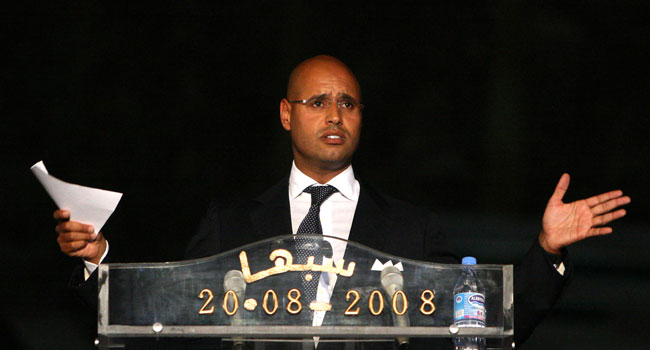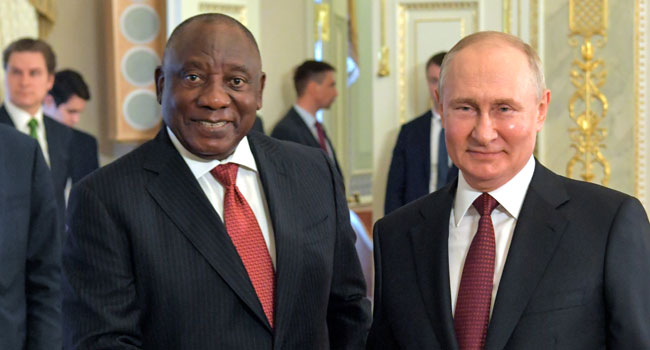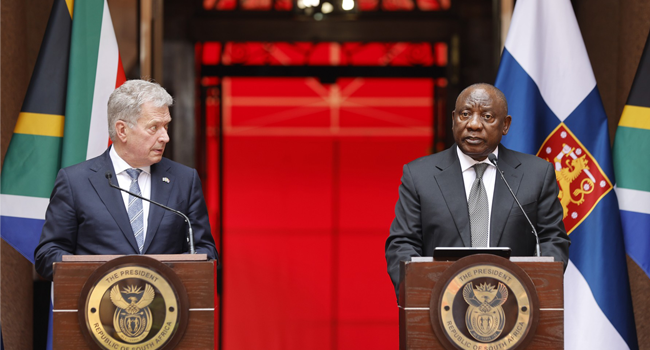
The International Criminal Court (ICC) ruled that a crimes against humanity case can be brought against Seif al-Islam, son of the later Libyan dictator Muammar Gaddafi, rejecting a challenge from his defence team.
The ICC Pre-Trial Chamber in a statement said it had decided by a majority vote that “the case against Mr Gaddafi was admissible before the court”.
Seif al-Islam, 46, has been sought by the international court in The Hague over crimes allegedly committed in February 2011 during the suppression of a popular revolt in Libya.
He was captured by a Libyan militia in November 2011, days after his father was killed in a NATO-backed uprising against his decades-old rule.
In 2015 a Tripoli court sentenced him to death in absentia along with eight other Gaddafi-era figures.
The armed group who captured him later announced that he had been released and his whereabouts remain unknown.
His lawyers had argued to the ICC that he was now sought for substantially the same crimes that he had already been tried for in Tripoli.
But the ICC judges decided that the Tripoli court decision remained subject to appeal and, as it was rendered in absentia, left open the possibility of reinstituting judicial proceedings.
AFP



